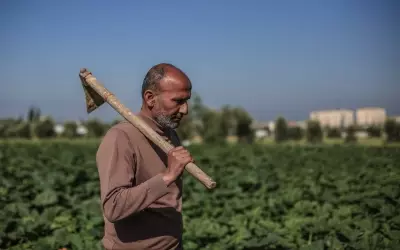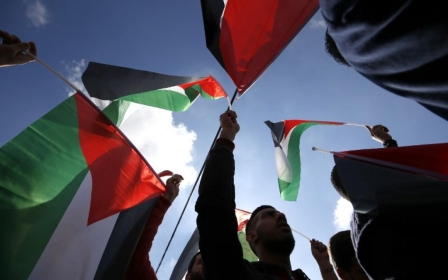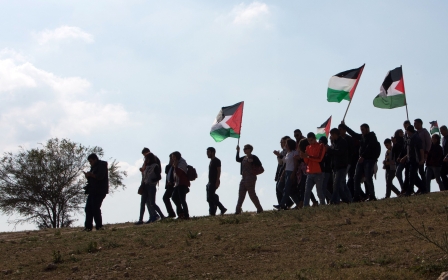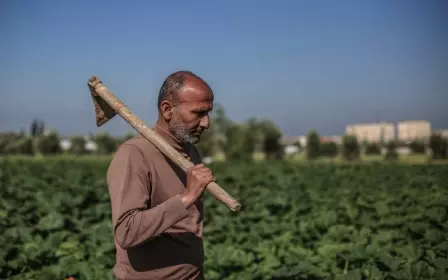Land Day anniversary: Thousands demonstrate across Israel, Gaza, West Bank
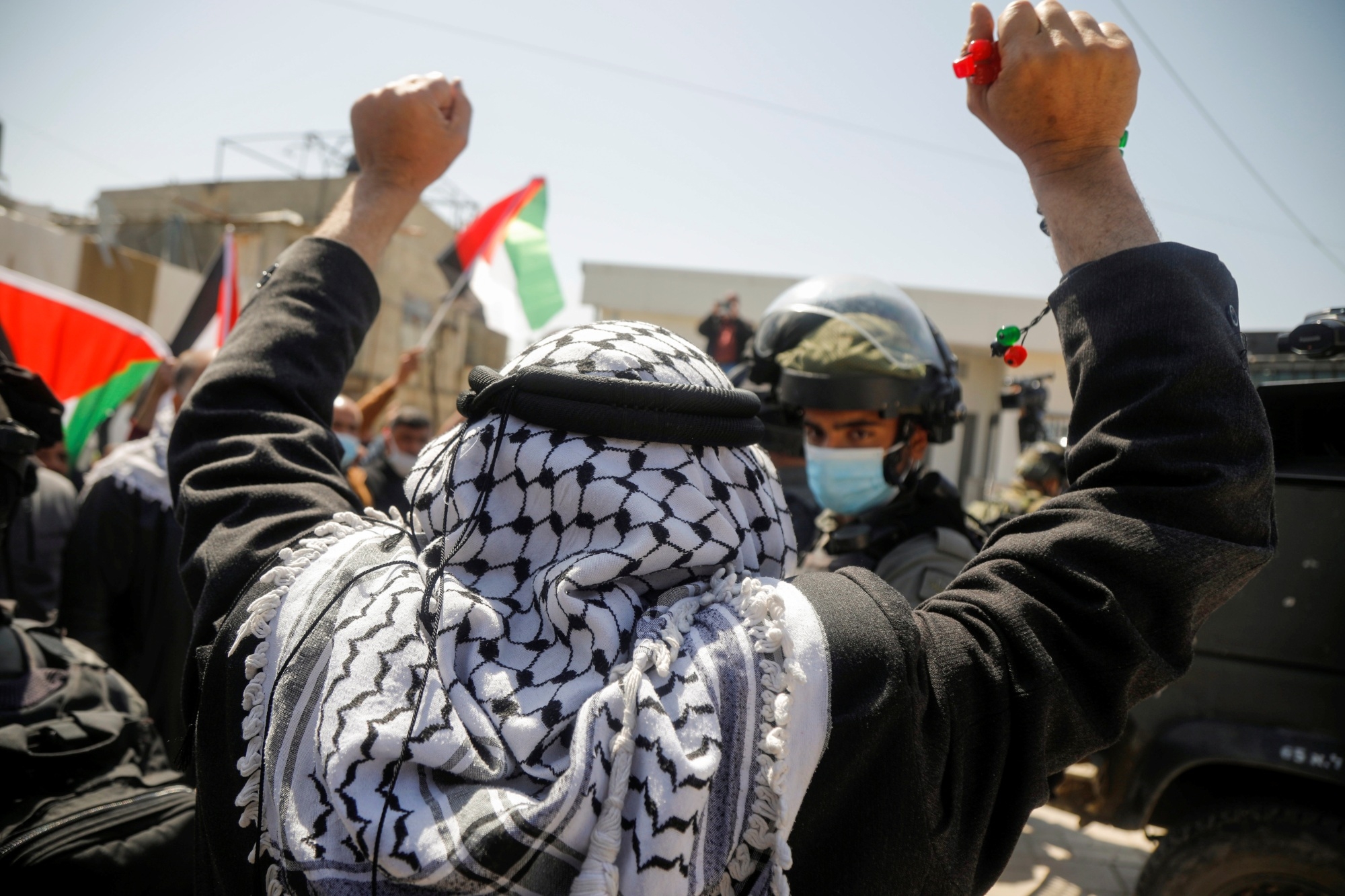
Thousands of Palestinians in the besieged Gaza Strip, the occupied West Bank and inside Israel demonstrated on Tuesday to commemorate the 45th anniversary of the first Land Day.
Palestinians have marked Land Day every 30 March since 1976, when Palestinian citizens of Israel protested against Israel's land grab policy and discrimination. Israeli forces killed six Palestinians on that day.
The Palestinian community in Israel, which makes up around 20 percent of Israel’s population, had lived under Israeli military rule from 1948 to 1966, existing under a state of curfews, arrests and punishments for expressing nationalist Palestinian sentiments.
On Tuesday, Palestinians laid wreaths on the graves of those killed in 1976. Local media reported that tens of Palestinian were arrested by Israeli forces in the West Bank towns of Ramallah, Hebron, Jenin, Salfit, Nilin, Nablus and Sebastia.
Last year, Land Day demonstrations were cancelled due to the spread of Covid-19.
In 2018, Land Day was chosen to launch the Great March of Return by Palestinian refugees in the besieged Gaza Strip, calling to return to the lands and towns of their families who were expelled by Israeli forces in 1948. Scores of Palestinians were killed by Israeli forces during the year-long march, including at least 46 children.
Sliman Abu Zaid, a human right activist from the unrecognised villages of the Naqab desert - also known as the Negev - in southern Israel, told Middle East Eye that the Israeli government had continuously seized lands from Palestinian Bedouins since 1948.
Almost 270,000 Palestinian Bedouins live in the Naqab, 100,000 of whom live in 35 villages unrecognised by the Israeli government, which does not provide them with basic services such as water, electricity, public transport, roads and schools, according to Sikkuy, an organisation that works to advance equality between Arab-Palestinian citizens of Israel and the country's Jewish citizens.
'A terrifying scene'
“They seize the land, as they did lately with Khirbit al-Watan, and uproot olive trees,” Abu Zaid said. He added that in 2020, Israeli authorities had demolished houses in six Palestinian unrecognised villages in the Naqab and uprooted fields of wheat and crops.
“Hundreds of women and children were made homeless and their children's books, clothes and toys were buried under the rubble of their homes,” he added.
“It a terrifying scene when you see tens of Israeli military and police vehicles, special forces and bulldozers arriving to demolish homes in the Naqab, but this scene has become a part of our life.”
Suher Badarneh, a Palestinian from the town of Arraba in Israel, told MEE that the memory of Land Day was still alive.
'There will be no end to Israeli apartheid without the return of the land to its original owners'
- Issa Amro, Palestinian activist, Hebron
But instead of participating in Land Day demonstrations, she said she was joining a wake for Ahmed Anabtawi, a 23-year-old Palestinian shot in the back by Israeli police on Monday in the neighbourhood of Wadi al-Nisnas in the coastal city of Haifa.
“Ahmed had psychological issues, and instead of arresting him they killed him in cold blood,” Badarneh said. “When I open the history book of Land Day, I see the same scenes I witnessed then - young people running away from the police, arrests, shootings, burned tyres and Israeli military announcing curfews from megaphones.”
Issa Amro, a Palestinian activist in the West Bank city of Hebron, told MEE that his family still has ownership papers for lands in present-day Israel. Amro owns a home in an area of Hebron known as H2, where 40,000 Palestinians live adjacent to 800 Israeli settlers amid heavy Israeli military presence.
“The conflict in Palestine is over land. I am banned by Israeli military and settlers from going back to my house in the old city of Hebron,” he said. “Land for us means dignity, identity, destiny, my future and my children's future.
"There will be no end to Israeli apartheid without the return of the land to its original owners,” he added.
Middle East Eye propose une couverture et une analyse indépendantes et incomparables du Moyen-Orient, de l’Afrique du Nord et d’autres régions du monde. Pour en savoir plus sur la reprise de ce contenu et les frais qui s’appliquent, veuillez remplir ce formulaire [en anglais]. Pour en savoir plus sur MEE, cliquez ici [en anglais].


